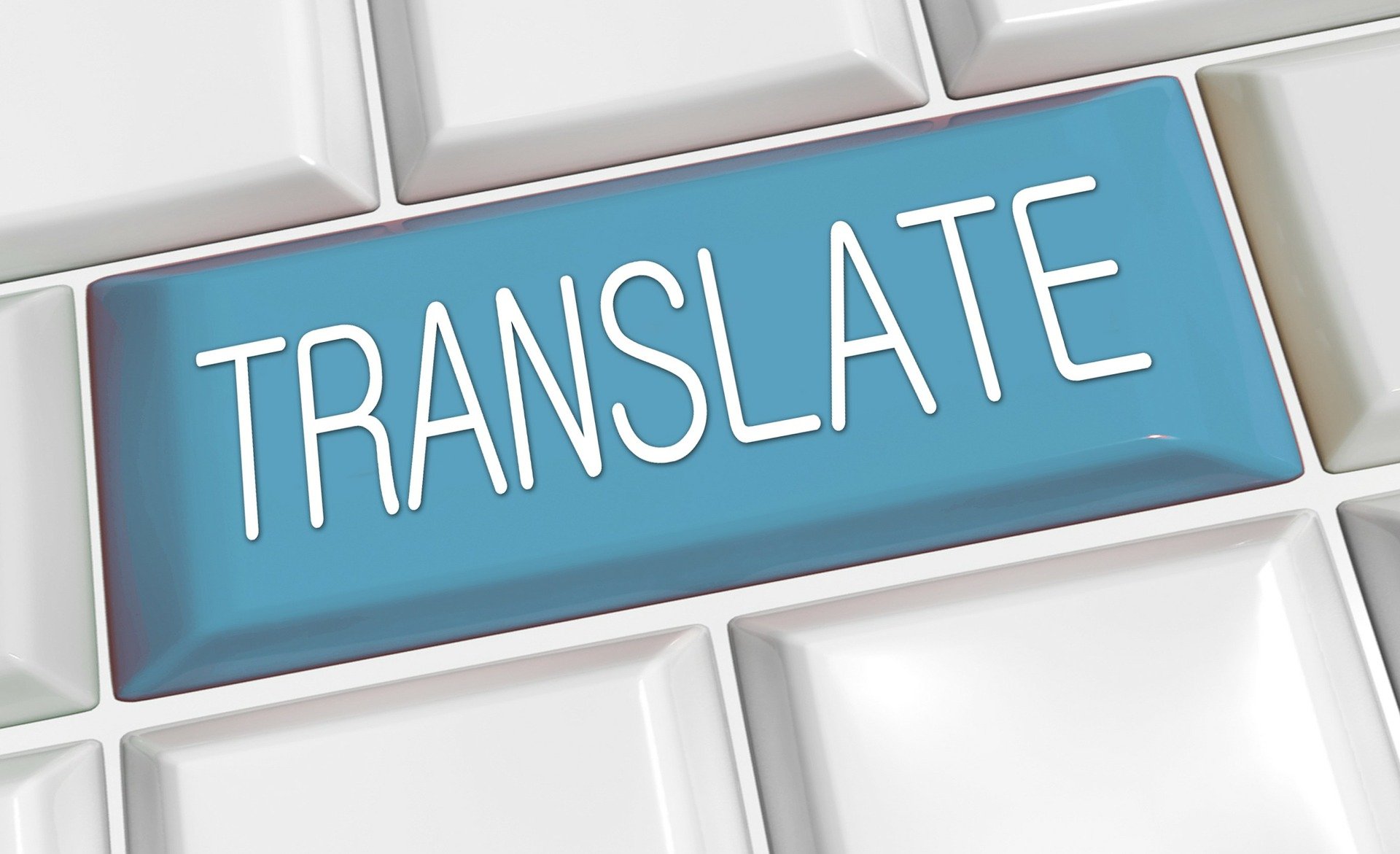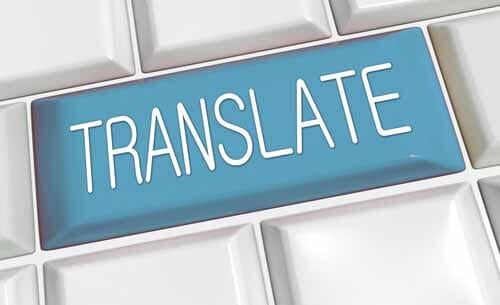Listen to Audio Version:
It’s common practice to ask a bilingual employee to provide translation services. In our blog “Can your Employee Do Your Translations?” we discussed 7 reasons this is not a good option when you need a high-quality translation of your materials. In this blog, we’ll go into more detail about what the monetary cost is to your business, not just the risk to quality.
On episode #4 of the Global Marketing Show podcast, Randi Rogers and I discussed having employees translate materials. In a prior position that she held, the company created all the content in English and then sent it to the in-country marketing managers to translate. For a month of content, it took the marketing managers a week to translate the materials. Looking back at this process, Randi said that if she had been at the company longer, she would have changed the process. She recognized the “costs” of having the marketing managers translate the copy. After the podcast, we talked more in-depth about this and I want to share some valuable lessons.
Cost Analysis
For the sake of this exercise, I make the following assumptions.
- A fully loaded salary equals salary times 1.3 to include employment costs of taxes and benefits.
- The return on a salary is 1.43. (For wages paid, you expect to get a return on the work!)
- An employee works 2080 hours per year.
- Translation is done at the rate of 250 words per hour (this is an average figure).
- Translations costs are $.25 per word (actual cost varies depending on language, subject, and length).
Translation projects can range in size and the employee’s salary can vary, so it’s helpful to look at a few different scenarios.
|
Scenario #1 – Asking a Mid-Level Employee to Translate
In this scenario we’ll assume your employee makes a salary of $75,000 per year and is fully bilingual in both the source and target languages. Let’s look at the math based on the assumptions we laid out above, I’ll explain as we go along:
If the employee makes $75,000 per year, their fully loaded salary equals of $97,500 which breaks down to $47 per hour. The company can expect to get $67 per hour worth of value from that employee.
Here’s the math broken-down (numbers have been rounded for simplicity):
- Fully loaded salary: $75,000 x 1.3 = 97,500;
- Hourly rate: $97,500/2080 hours = $47;
- Expected employee value: $47 x 1.43 return = $67
Now that we know the hourly cost of the employee and their expected return value, let’s look at the translation project they’re being asked to perform. Let’s assume the project has 40,000 words (In this scenario we’ll assume it has no layout considerations as this would add additional costs). This size project would take 160 hours to complete.
Math:
- 40,000/250 words per hour = 160 hours
Time to calculate the actual cost of asking an employee to provide translation services instead of performing their regular duties. To complete the project, it would include the direct costs of the employee (salary + employment costs, PLUS the opportunity costs on what they are hired to do which equals $10,725.
Math:
- Employee direct and opportunity cost: $67 x 160 = $10,720
Now, let’s compare this to the cost of hiring a professional translator to perform your translation. To hire a professional it would cost on average $.25 per word, or .25 x 40,000 = $10,000.
In this example you can see that for a $75,000 salaried employee, it is less expensive to hire a professional translator to complete the project.
What if you change the size of the project to something smaller? Using the same math, let’s look at the costs of some smaller sized projects using an employee making the same amount of money - $75,000.
Here’s the math of what you’ll lose in productivity vs the cost of hiring a professional translator:
- Salary of $75,000 equals an “expected employee value” of $67/hour (see math above)
- Cost of a translator equals $0.25 per word
|
Word count |
1000 |
5000 |
12,000 |
40,000 |
|
Hours for employee |
4 |
20 |
48 |
160 |
|
Lost productivity |
$268 |
$1,340 |
$3,216 |
$10,720 |
|
Translator cost ($0.25/word) |
$250 |
$1,250 |
$3,000 |
$10,000 |
Across the board, you can see that it is less expensive to hire a translator than to have an internal employee with a salary of $75,000 translate.
The only exception would be for projects under 350 where Rapport International charges a minimum fee of $95 (which is a low minimum charge in the industry).
Scenario #2 – Using a Lower-Level Employee to Translate
What about having an employee who makes less than $75,000 translate your materials? This opens other considerations that I discuss below – but for the sake of doing the numbers, let’s look at this option.
When you look at an employee who makes $50,000, it is less expensive than hiring a professional, but read below about the risks. The highlighted numbers are the changing variables in this analysis.
- Fully loaded salary: $50,000 x 1.3 = $65,000;
- Hourly rate: $65,000/2080 hours = $31;
- Expected employee value: $31 x 1.43 return = $44 per hour
- Cost of professional Translator = $0.25 per word
|
word count |
1000 |
5000 |
12,000 |
40,000 |
|
hours for employee |
4 |
20 |
48 |
160 |
|
Employee cost |
$176 |
$880 |
$2,112 |
$7,040 |
|
Translator cost |
$250 |
$1,250 |
$3,000 |
$10,000 |
If I run the same analysis on an employee who makes $65,000, I see the following:
- Expected employee value = $59 per hour
- Cost of professional Translator = $0.25 per word
|
word count |
1000 |
5000 |
12,000 |
40,000 |
|
hours for employee |
4 |
20 |
48 |
160 |
|
Employee cost |
$236 |
$1,180 |
$2,832 |
$9,440 |
|
Translator cost |
$250 |
$1,250 |
$3,000 |
$10,000 |
For a completely financial look at having an employee do your translations, using this methodology a salary below $70,000 “saves money” to have your employee do your translation.
Other Costs to Consider
Considering the math, it may be tempting then to use an employee who makes below $70,000 to complete your translations. Yet, in talking to Randi Rogers on the podcast, she shared her experience in doing translations this way and she talked about the role of her employees who were tasked with the translations. These employees set up trade shows and performed other marketing functions that brought in business. By taking them out of the field for a week, that dramatically (negatively) affected sales for the company. The opportunity cost became even higher than our example above. Imagine a business developer losing a week in the field every month. That number would dramatically influence the math and is much more specific to each individual company. Even if you are considering using an employee who doesn’t directly bring in business, you’re still impacting their productivity which may have a ripple effect impacting the productivity of others. There’s a cost anytime you pull someone away from their typical duties and it has the potential to be far-reaching.
Expertise to Do it Right
Other HUGE considerations on who does your translation that is not included in this math analysis are liability risk, continuity of message and skill. Although your employees know your company lingo and industry terminology, they don’t have the same expertise as a pro. Professional translators limit your liability with multilingual communications in many ways and they have the experience to provide accurate, high-quality translations.
First, as an agency, we carry a professional liability insurance policy that we have never accessed in over 30 years of business. If you want to read about cases where translation went wrong, read our blogs about bad translation, liability or download humorous stories in our tidbits book. We take care in hiring translators to make sure we do not run into these situations.
Secondly, we have seen liberties that employees may take during translation. Some employees may not like the company messaging so they change the content to what they want it to say. For example, we’ve seen situations where marketing teams spend time creating messages that talk about benefits then a salesperson who is translating the material changes the message to features or cost-based messaging and says, “it is more appropriate for this culture.” They may not understand buyer behavior that is influenced by emotional messages.
Additionally, many employees speak English well and can write well enough to communicate. Yet, they do not have in depth understanding of subtle meanings. A professional translator is fully educated and experienced in both languages. Many of our translators have quoted specific grammar dictionary rules to me when client edits have come back incorrect. They understand that good translation is a marriage between correct grammar and accurate messaging.
And, if you have your employee do your translation, what are your quality control mechanisms? As with writing, translation needs a quality control process to make sure it is accurate. By handing a translation project to an employee that already has a list full of responsibilities to complete, you risk having your content being pushed through to completion rather than receiving the time and attention in needs to be done right. Your written word stays around and reflects on you. If it’s something that matters, make sure to have a quality control process.
Between the lost productivity, the risks of poor quality, an inexperienced person being asked to translate, and no liability insurance it is well worth your time to think about whether it is worth having your employee do your translation.
When you’re in need of a professional translator for your materials, contact us and we’ll advise on your best options and provide high-quality translations backed by our 100% satisfaction guarantee.
Rapport International specializes in multilingual communications, providing language translation and interpretation services that are accurate and culturally appropriate. We use the right voice and the correct terminology to avoid liability, customize services to your needs, and deliver on time and within your budget. With our 100% satisfaction guarantee, you can trust that it’s done right. Contact us today if you would like more information or to get a free quote.
Popular Posts
Popular industry news, interviews, technologies, and resources.






















